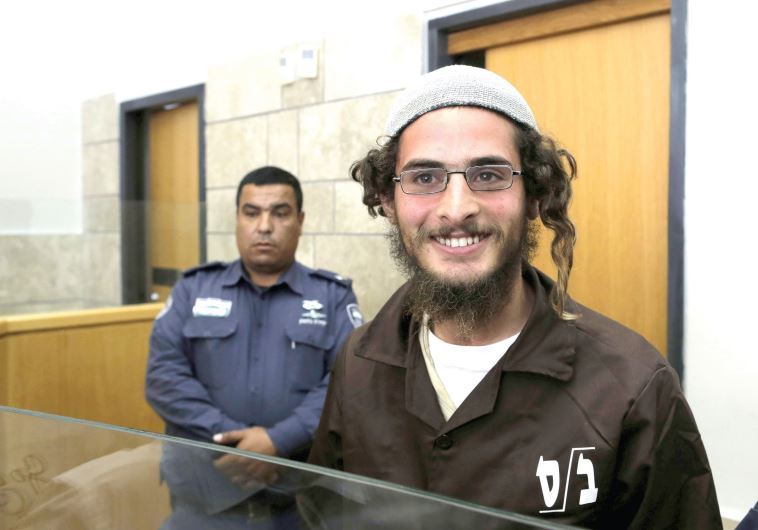Comment: Cracking down on the Jewish settler hilltop youth
A year after Duma attack that left Palestinian parents and toddler son dead, Jewish terrorism is in regression.
 Meir Ettinger attends a remand hearing at the Magistrate’s Court in Nazareth.(photo credit: AMMAR AWAD / REUTERS)Updated:
Meir Ettinger attends a remand hearing at the Magistrate’s Court in Nazareth.(photo credit: AMMAR AWAD / REUTERS)Updated: